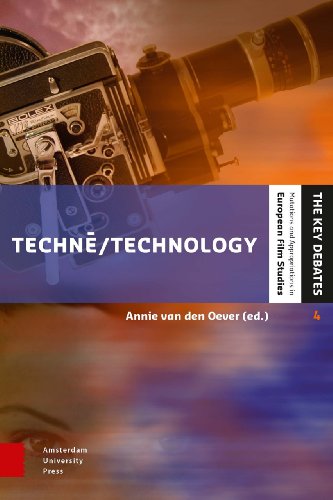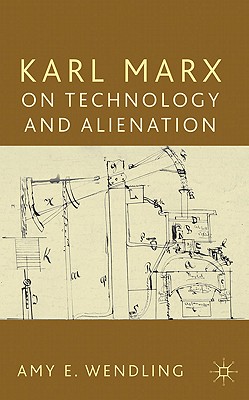Annie van den Oever (ed.): Technē/Technology: Researching Cinema and Media Technologies (2014)
Filed under book | Tags: · aesthetics, art, cinema, film, film theory, image, machine, media, media technology, media theory, perception, phenomenology, philosophy of film, philosophy of technology, photography, technē, technology, television, video, vision

“This fourth title in the series The Key Debates sets out where the term technē comes from, how it unleashed a revolution in thought and how the concept in the midst of the current digital revolution, once again, is influencing the study of film. In addition, the authors – among them André Gaudreault, Geoffrey Winthrop-Young, Martin Lefebvre, Dominique Chateau, Nanna Verhoeff, Andreas Fickers and Ian Christie – investigate how technologies have affected the major debates about film, how they affected film theory and some of its key concepts. This is one of the rare books to assess the comprehensive history of the philosophies of technology and their impact on film and media theory in greater detail.”
Publisher Amsterdam University Press, Amsterdam, 2014
The Key Debates: Mutations and Appropriations in European Film Studies series
Creative Commons BY NC ND License 3.0
ISBN 9089645713, 9789089645715
413 pages
Amy E. Wendling: Karl Marx on Technology and Alienation (2009)
Filed under book | Tags: · alienation, capitalism, communism, labour, machine, philosophy, philosophy of technology, revolution, technology, thermodynamics, value, women, work

“In Karl Marx on Technology and Alienation, Amy Wendling draws on lesser known archival materials, including Marx’s notebooks on women and patriarchy and technology to offer a new interpretation of Marx’s concept of alienation as it develops throughout his works. For Marx, technology exemplifies the interaction between human beings and nature. Marx’s description of this interaction is in transition throughout his works. An older, humanist and vitalist paradigm sets the human being against nature as a qualitatively different type of force. A newer, thermodynamic paradigm sets the human being and nature in continuity. Marx’s work occurs at the juncture of these paradigms and contains elements of each. This affects his deployment of the concept ‘labor’. Labor is demoted from its status as a meaningful human activity that confers political status and mastery of the natural world, and it becomes a mere nodal point where energy is transferred. Against this backdrop, Marx increasingly appealed not to meaningful labor but to the abolition of labor as the culmination of human freedom. He also shows how the labours of members of the working class, including women, are interpreted in the old and new paradigms.”
Publisher Palgrave Macmillan, 2009
ISBN 0230224407, 9780230224407
272 pages
Reviews: Chris Arthur (Marx & Philosophy Review of Books, 2010), Richard Cotter (LSE Review of Books, 2013), Tom Bunyard (Historical Materialism, 2014), McKenzie Wark (Public Seminar, 2015).
Comment (0)Siegfried Giedion: Mechanization Takes Command (1948)
Filed under book | Tags: · agriculture, architecture, furniture, history of technology, industry, machine, movement, philosophy, philosophy of technology, production, technology

“First published in 1948, Mechanization Takes Command is an examination of mechanization and its effects on everyday life. A monumental figure in the field of architectural history, Siegfried Giedion traces the evolution and resulting philosophical implications of such disparate innovations as the slaughterhouse, the Yale lock, the assembly line, tractors, ovens, and “comfort” as defined by advancements in furniture design. A groundbreaking text when originally published, Giedion’s pioneering work remains an important contribution to architecture, philosophy, and technology studies.”
Publisher Oxford University Press, New York, 1948
Third printing, 1970
743 pages
via babyalanturing
Reviews: John E. Sawyer (The Journal of Economic History, 1949), Harry Elmer Barnes (American Journal of Sociology, 1949), William F. Ogburn (The American Historical Review, 1948), Henry Guerlac (American Quarterly, 1949), Donald Horton (American Sociological Review, 1948), Paul Zucker (The Journal of Aesthetics and Art Criticism, 1949), Arthur P. Molella (Technology and Culture, 2002), Tom Vanderbilt (Bookforum, 2010), Bryan E. Norwood (Culture Machine, 2015).
PDF (removed on 2014-4-21 upon request of the University of Minnesota Press)
Comment (1)
